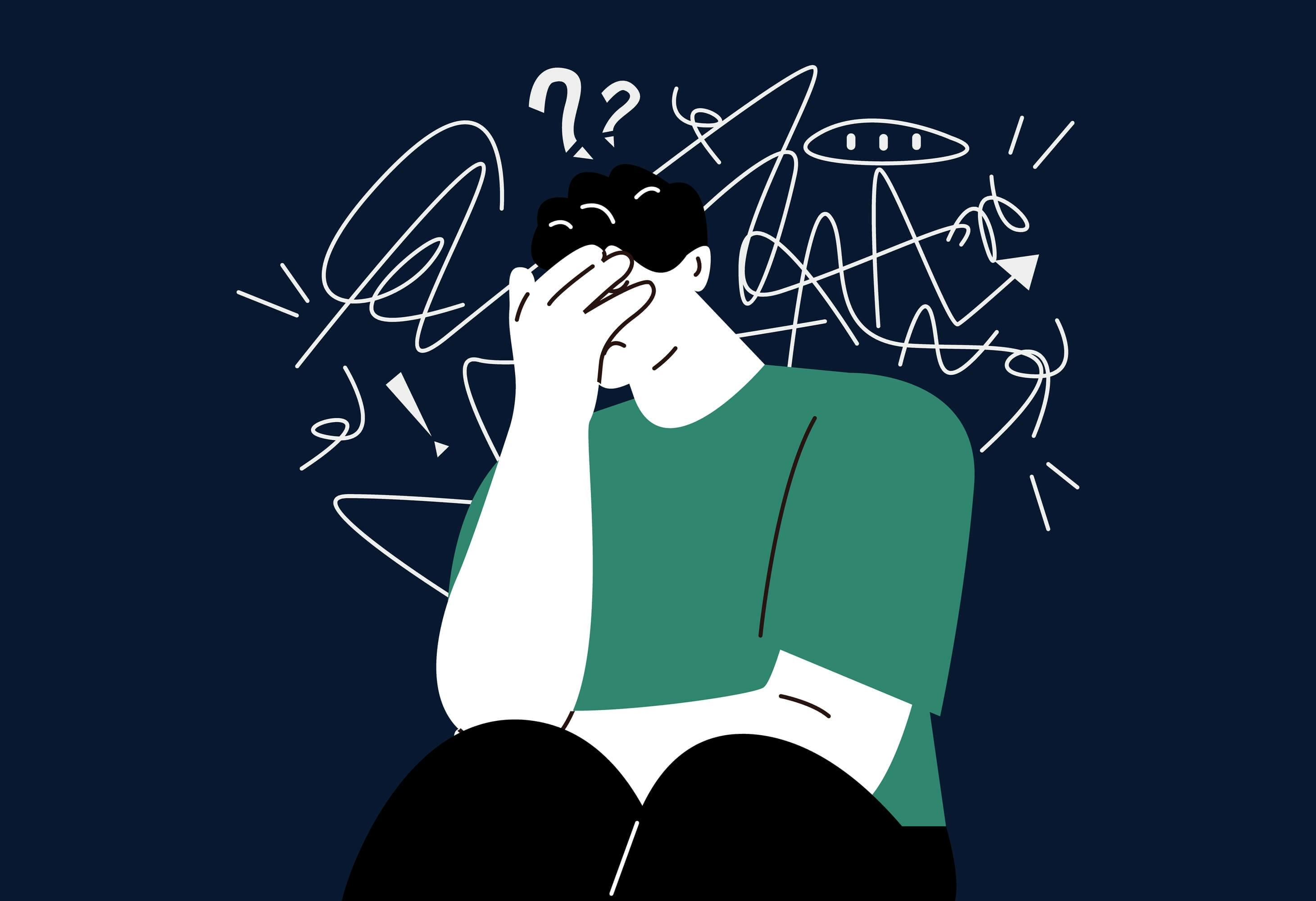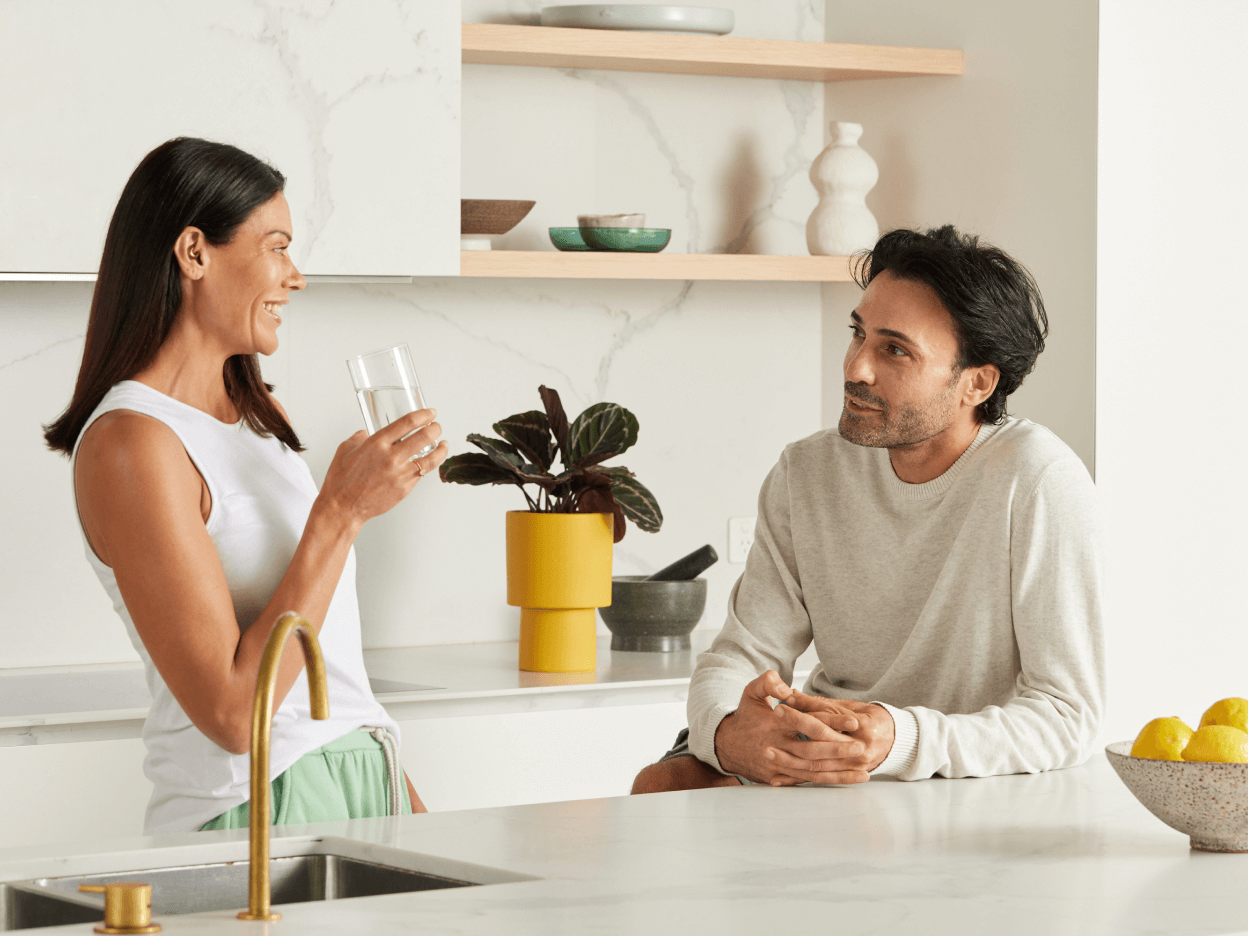In everyday life, you may, at times, feel uneasy or fearful of something. In these situations, you might find yourself anxious – you sweat, have a fast heartbeat, or are restless or tense. With all these things, the question ‘what is anxiety?’ might come to mind.
Mosh understands why you ask, and we’re here to help you better understand this topic. Speak with a Mosh doctor if you have any questions regarding the best anxiety medications, how to get rid of anxiety, or what mental health is in general.
Ever wondered what does anxiety feel like?
Even if they might occur altogether, panic, anxiety, phobia, and fear are not all the same. To put it simply, anxiety is an emotion about things we believe may happen, whereas fear is an extreme biological response to immediate danger.
Is anxiety a disorder? It is simply an emotion, which can be different for people with anxiety disorders. This is where phobia, a disorder, falls under. Phobia sufferers have an excessive fear of things that pose little to no danger at all. Their fear might even be about being in social situations, which is also known as social anxiety.
A clearer understanding of this mental condition and its other degrees can make a big difference, and it would be of great help to understand how it is diagnosed.
When learning how to deal with anxiety, it is also vital for you to know how it is diagnosed. Since some people ask the question, ‘what is anxiety?’ they might be tempted to make the diagnosis themselves. However, only doctors and qualified professionals can do so.[1]
There can be times when you experience some symptoms of the disorder, which include anxious beliefs or thoughts that are difficult to control, rapid heartbeat, unexplained aches and pains, shortness of breath, dizziness, and changes in behaviour. [2]
There are many types of anxiety and to diagnose an anxiety disorder, a doctor will perform a physical exam, ask about symptoms, and may even recommend a blood test to see if another condition is causing such symptoms.[3]
The doctor may also want to know what other medicines you are on. Some kinds of medications have been linked to people getting anxiety symptoms. Furthermore, many different health problems, like hyperthyroidism, schizophrenia, and sleep apnea can cause anxiety.[4]
If the doctor can’t determine where the patient’s symptoms are coming from, they will do a psychological exam, in which a therapist will ask if anxiety or depression runs in your family. They will ask you about your symptoms and give you a questionnaire about how your symptoms affect your life.
Anxiety disorders may be accompanied by other mental health problems, such as PTSD or an eating disorder. The doctor may also ask you questions to find out if you have any other mental health problems. After looking at your symptoms and family history, the doctor can talk about the possible diagnosis and treatment.
At Mosh, you can start with a short online quiz that asks you about your current condition, your history, and other information about your concerns. Within the same day, a Mosh doctor will reach out to you through text, call, or video chat to give you science-backed and personalised advice. If deemed necessary, your doctor might recommend a treatment plan, which can include therapy, prescription medication, or both.
If you are recommended therapy, you can look for a therapist who is the ideal fit for you at Mosh. Our sessions are one-on-one, online, and completely confidential, so you can feel comfortable when sharing your concerns with our therapists.
If you are prescribed medication, we can have your treatment delivered to your doorstep for free and in discreet packaging. You can opt for our subscription plans, where you’ll get automatic refills as needed, so you won’t have to worry about running out of medication.
What causes anxiety is not a single element but rather many interacting factors, such as one’s personality, the challenges they’ve faced in life, and their physical health.
Genes
Some people with anxiety issues may be more prone to such because of their genes, and these mental health conditions can sometimes be passed down through families.[5] But just because a parent or a close relative has anxiety or another mental illness doesn’t mean you will also have one of these conditions.
Personality Traits
Furthermore, research shows that some personality traits make it more likely for someone to have anxiety. For example, children who are perfectionists can sometimes develop anxiety as kids, teens, or adults.[6]
Stressful Life Events
Additionally, stressful life events can be causes for the development of anxiety. For example, one might be terribly scared of a job change, experience work stress, pregnancy, relationship issues, abuse, or the death of a loved one.[7]
Chronic Physical Illness
Even a chronic physical illness, such as diabetes, heart disease, or asthma, can be a cause of anxiety. These conditions might even mimic the symptoms, so it can be helpful to see a doctor and get checked out to see if your anxiety is caused by something medical. [8]
Alcohol and Drug Use
The use of alcohol and drugs can make anxiety worse, especially when a patient becomes dependent and the effects of the drug wear off. Meanwhile, it’s important to check for and get help for any conditions caused by substance use.[9]
An anxiety disorder can be caused by many things that are different for each person. It’s essential to keep in mind that you can’t always determine what’s making you anxious or change a bad situation. Remember that you aren’t alone and can seek support when going through difficult times.
At Mosh, we are ready to listen to your concerns.
Medication can sometimes cure anxiety disorders. Many find therapy – alone or in combination with medication for anxiety – most helpful. Therapy provides you with the tools to control your anxiety now and in the future.[10]
Cognitive Behavioural Therapy (CBT)
CBT is the most common treatment for anxiety disorders. One type of CBT is exposure therapy which gradually exposes you to your specific fears, both imagined and in real life in a safe environment. [11]
Psychoanalytic Therapy
Psychoanalytic therapy can help you understand yourself and alleviate anxiety by examining your thoughts, anxieties, and wants. As it is intensive, it can take years to find patterns in your thinking.
Art Therapy
Art therapy is often combined with other methods. However, more research needs to be done regarding this.
Dialectical Behaviour Therapy (DBT)
DBT is currently used to treat other conditions aside from anxiety. It focuses on ‘dialectical’ or different points of view, acceptance, and change. DBT helps you accept your anxiety and change it. It’s like trying to get better while still liking yourself.
Now, with better anxiety awareness, you can be of great help not only to others but also to yourself when the question ‘what is anxiety?’ is asked.
If you or someone you know has concerns about anxiety, Mosh is a good place to start. Just like you, we are committed to helping you reach your goals.
Reach out to us whenever you're ready.

